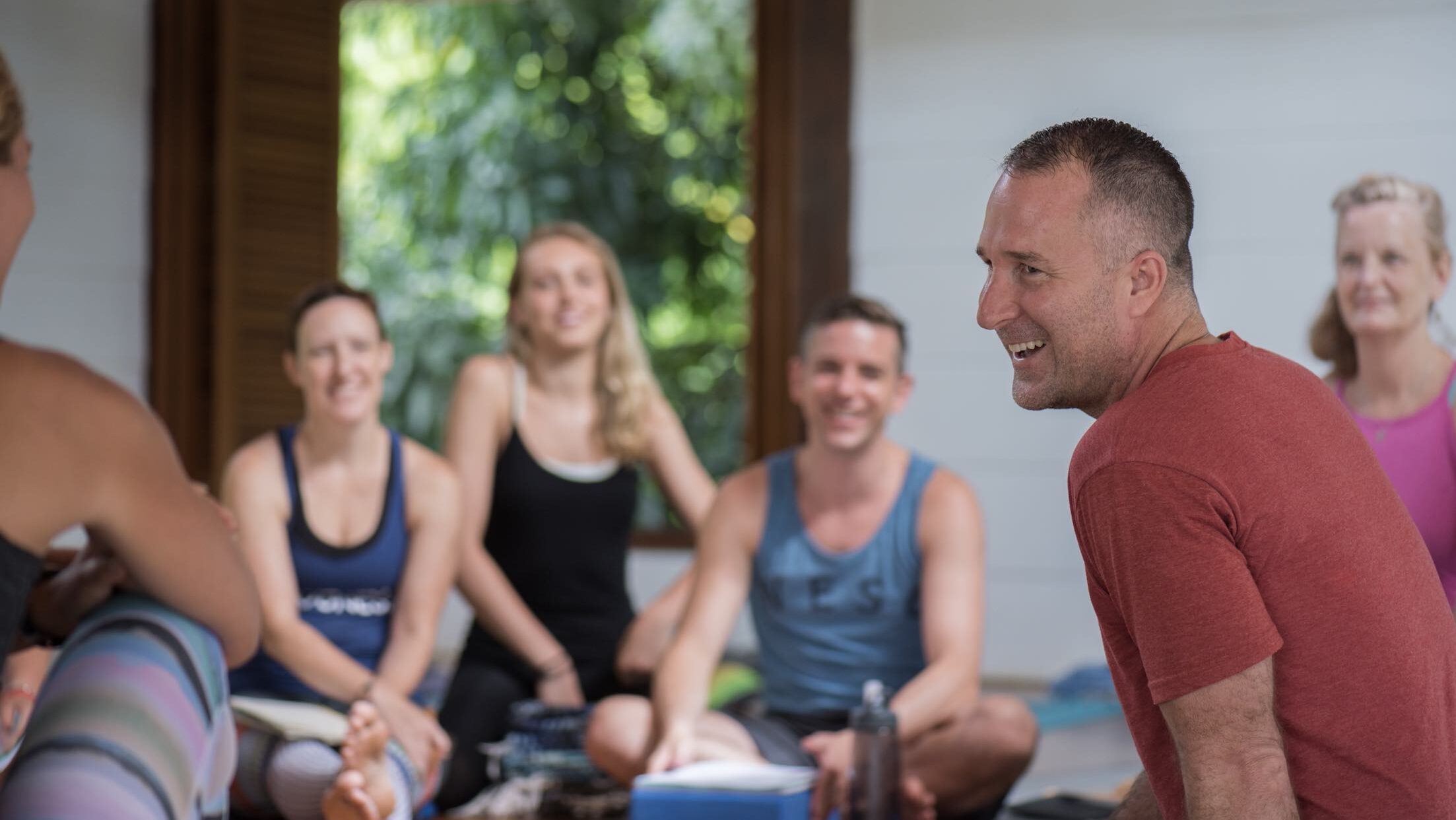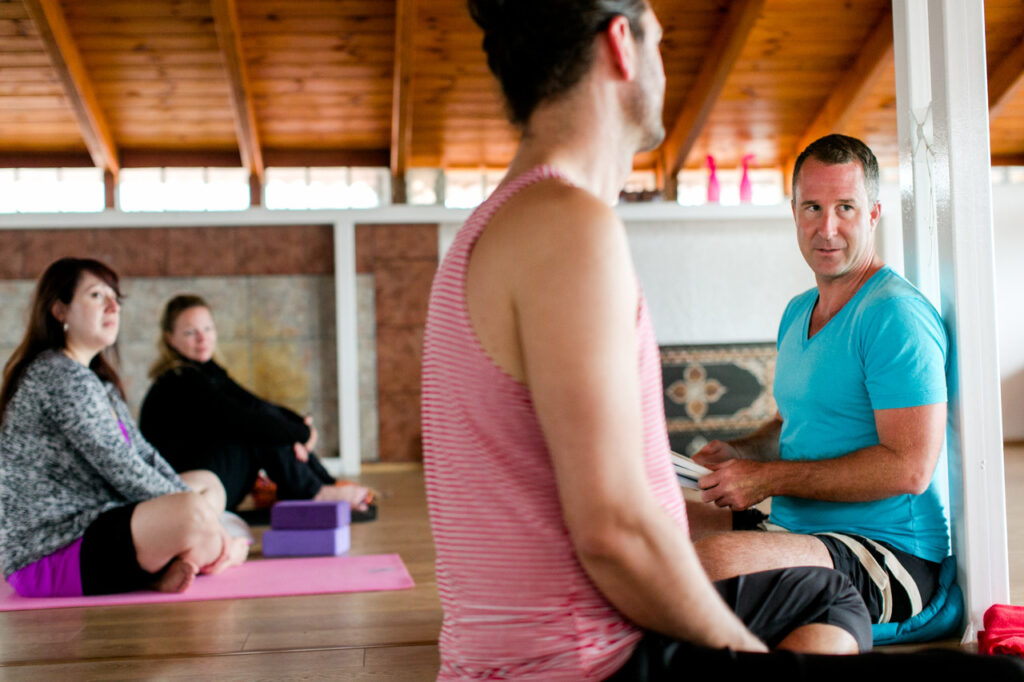Are you tired of feeling like an asshole and wondering how to stop being judgemental?
Do you constantly make negative assumptions about others and feel disconnected from those around you?
Whether it’s judging our own abilities or criticizing others, judgmental behavior can undermine our yoga practice and our relationships with others.
Now for some good news:
With the right mindset and tools, we can learn how to stop being judgemental and cultivate a more compassionate and open-hearted approach to life. From practicing self-compassion to embracing diversity, these strategies will help you enhance your relationships and cultivate inner peace (so you can learn how to stop being an asshole once and for all.)
Why am I so judgemental?
I can now admit it openly:
I used to be a real judgemental asshole.
It wasn’t until I started on my path of radical self-acceptance that I realized how many preconceived notions and opinions I had about the world and others.
My mind was constantly sizing everyone up and putting them into neat little boxes. Even when a new student entered my yoga class, my brain would start forming an impression and drawing conclusions.
Sometimes, my thoughts were positive, concluding they had the perfect yoga body and would be great learners. But other times, my thoughts were negatively judgmental.
In those moments, my mind said, “No way! Your body is not a yoga body. You don’t look like you’re going to commit. You’re too old and don’t have what it will take.”
I can vividly recall a specific memory from when I started as a yoga teacher. One day, a student in his mid-to-late fifties showed up to class. He hadn’t been to the gym in years and looked like he hadn’t done any exercise at all.
At that moment, my mind immediately jumped to conclusions about him: “He’s not serious. He’ll come to one class, maybe two, and then give up. This person will try to eat up my time and not give anything in return. He’s going to be a needy student.”

Looking back, I’m mortified by some of the opinions I used to have.
Thankfully, at some point, I remember stepping back and saying, “Aaron, your job is to hold the space and allow what needs to be born to be born.” Aka, you need to learn how to stop being judgemental!
It is not easy to step back from ourselves to see ourselves. Often it is too easy to give in to our preconceived notions. Our ego and sense of self are fighting to hold on to themselves, and yoga is the process of disseminating it.
As time passed, this student became one of my most regular and devoted students. This student, who I was so ready to dismiss, became a pillar and shining example of commitment. He demonstrated deep dedication and devotion to the practice, the community, and those in need of help.
He, in turn, has become one of my dearest friends. As the years passed, this student began to follow me worldwide on yoga retreats. He came with me to India and followed me into the Himalayas. He was there for me in times when I truly needed support.
Can you imagine what would have happened if I had let my oversized, self-indulging ego take over?
I have accepted that my mind is a judgment machine. In this deep acceptance, I have found that I (and I alone) can choose my reactions. I can take a deep breath, pause momentarily, and ask, “Does my opinion matter? Why do I need to see myself as superior to others?”
From this place, I can move on and observe the struggles of my over-inflated ego. It is from this place that I can be more compassionate and understanding.
Suppose you’re struggling with judgmental thoughts and behaviors. In that case, it can be helpful to reflect on your beliefs, insecurities, and fears and work on developing greater empathy and compassion for others.

There are many potential reasons why someone might be judgmental (and it’s often a combination of factors.) That said, if you’re struggling with how to stop being judgemental, here are a few possible explanations to consider:
- Conditioning: We all grow up with specific belief systems and values passed down to us from our families, cultures, and communities. These beliefs can influence the way we perceive and judge others.
- Insecurity: Sometimes, we judge others to deflect attention away from our perceived flaws or insecurities.
- Fear: We may judge others because we fear something about them or ourselves. For example, we might judge someone confident and outspoken because we fear that we’re not as secure or capable.
- Lack of empathy: If we struggle to put ourselves in other people’s shoes or see things from their perspective, we may be more likely to judge them based on our biases and assumptions.
- Perfectionism: If we hold ourselves to impossibly high standards, we may also hold others to similar standards and judge them when they fall short.
How do I stop judging?
Here’s the thing:
We are all judgmental — whether we admit it or not.
People like to wear spiritual masks and say, “I am not judgmental. I just love and accept everyone.” But that’s nonsense. Here’s my message for judgemental person:
We are all judgmental, opinionated, and self-righteous. And it is these attributes that hinder our own path to fulfilling the purpose of our lives.
I urge you to learn to accept the parts of yourself you wish to remain hidden. Cultivate more awareness of how your mind reacts.
Only when we shine a light on the parts of ourselves that we may not want to accept, such as our tendencies to be judgemental, can we learn how to stop being judgemental and nurture a more compassionate outlook.
Your highest potential is to love and joyfully accept yourself and others – not how we wish they could be, but how they are now.

5 Easy ways to stop being judgemental
Now that we’ve accepted our tendencies to be assholes, let’s talk about how to stop being judgemental:
1. Practice empathy
One effective way to stop being judgemental is to practice empathy.
Empathy is the ability to understand and share the feelings of another person — to step into another person’s shoes, see the world from their perspective, and relate to their experiences.
Practicing empathy requires us to suspend our own judgments and opinions and instead focus on the thoughts and feelings of the other person. This can be challenging. However, with practice, empathy can become a natural and powerful tool for building deeper connections with others and cultivating a more compassionate outlook on life.
So, how do you practice empathy?
Start by paying close attention to the other person’s words and body language. Try to put yourself in their position and imagine what it must be like to experience what they are going through. Listen to their concerns without interrupting or jumping to conclusions, and ask questions to clarify their perspective.
In your quest to understand how to stop being judgemental, I want you to remember…
Empathy is not about agreeing with the other person but seeking to understand and connect with them.
Now, don’t forget to practice self-empathy, too. This means being kind and compassionate with yourself and acknowledging your feelings and experiences. When we can be empathetic with ourselves, we can better extend that empathy to others.
2. Challenge your assumptions
When we make assumptions about others, we project our beliefs, biases, and experiences onto them. Only by challenging these assumptions can we break down barriers and approach situations clearly and openly.
Step back and examine why you hold certain beliefs. Are these beliefs based on personal experiences, societal stereotypes, or other factors?
One practical way to challenge our assumptions is to seek out different perspectives. Engage in dialogue with people with different beliefs or experiences than our own. Listen to their stories and perspectives, and seek to better understand their worldview.

3. Cultivate awareness
When we are unaware, our minds are often filled with automatic assumptions, and we don’t know how to stop being judgemental.
We must slow down and pay attention to our thoughts and feelings to cultivate awareness. This involves becoming more present in our daily lives.
One way to cultivate awareness is to practice meditation. As you meditate, you may notice that your mind is filled with thoughts and judgments, which is normal. The goal is to simply observe these thoughts.
By observing our thoughts without judgment, we can see patterns and recognize when we are making assumptions. Mindfulness also helps us stay present in the moment, which can prevent us from jumping to conclusions or making snap judgments.
If you’re new to meditation, start with these meditations for inner peace.
4. Develop compassion
When we are kind and forgiving towards ourselves, we can more easily extend kindness to others. This means acknowledging and accepting our flaws and mistakes rather than judging ourselves harshly.
Of course, we should also actively seek opportunities to help others. This can be as simple as offering a kind word or gesture or as involved as volunteering for a charity or community organization. When we focus on helping others, we are less likely to judge them and more likely to see them as fellow human beings needing support and kindness.
Another way to practice compassion is to engage in active listening.
This means hearing what others are saying without assuming or jumping to conclusions. When we actively listen to others, we gain a deeper understanding of their experiences and perspectives, which can help us develop greater empathy and compassion.
Finally, in learning how to stop being judgemental, it is essential to practice forgiveness towards others, even when we may disagree with their actions or beliefs. This does not mean condoning harmful behavior but acknowledging that everyone makes mistakes and deserves a chance to grow and change.

5. Expand your social network
One of the biggest reasons we are often judgmental is our limited exposure to different people and cultures. We stick to our own social groups and interact only with people who share similar values, beliefs, and backgrounds as us. This can create a narrow-mindedness that prevents us from seeing things differently.
By expanding our social circle and community, we break out of this limiting thought pattern. We meet people with different opinions, lifestyles, and experiences and learn to appreciate and understand their points of view.
Expanding your social circle can be as simple as attending a community event or joining a new club or group. Or, travel to new places or volunteer for different causes.
It’s important to remember that expanding your social circle isn’t just about meeting new people but also about building meaningful connections with them.
Take the time to listen to their stories and understand their experiences. Ask questions and be genuinely interested in learning more about them. Doing so can cultivate a more profound sense of empathy and understanding that can help you become less judgmental.
To sum up how to stop being judgemental

Breaking free from the judgmental habits that plague us all is possible. By practicing empathy, challenging assumptions, cultivating awareness, developing compassion, and expanding our social circles, we can change our behaviors and become more open-minded, kinder, and compassionate.
Remember, this journey requires patience, self-compassion, and a willingness to be vulnerable. But the rewards are immeasurable: more robust relationships, enhanced well-being, and a more fulfilling life.
If you’re ready to take the next step in your mindfulness and meditation practice, consider joining The Yogi Club.
As a member, you’ll have exclusive access to guided meditations, mindfulness exercises, and more to support your journey towards inner peace. Join today, and let’s continue growing together!




